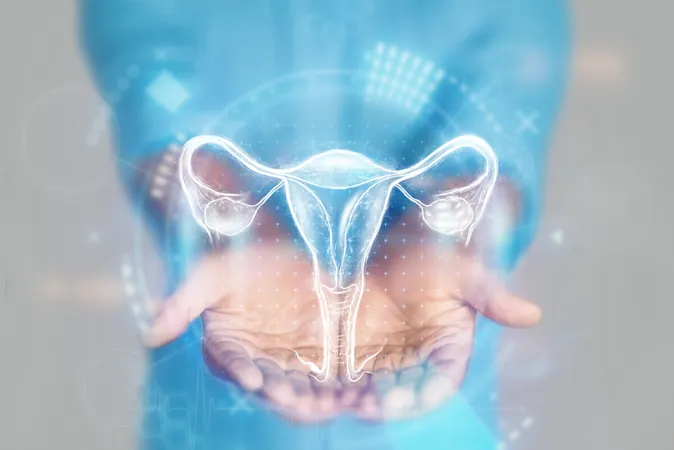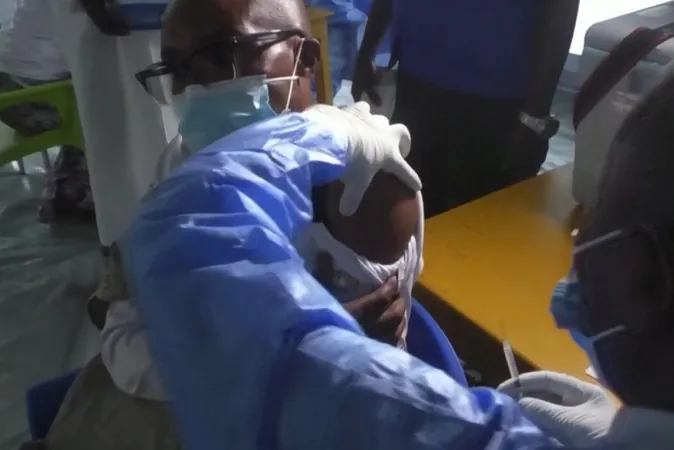
Alarming Link Between Breast Cancer and Reproductive Health Uncovered in Caribbean Women
2024-10-08
Author: Arjun
Introduction
A groundbreaking study published in JAMA Network Open has unveiled a concerning association between breast cancer (BC) and various reproductive health factors in women from the Caribbean. This region has one of the highest rates of breast cancer globally, raising alarms about the health of its female population.
Breast Cancer Statistics
Breast cancer is the fourth leading cause of cancer-related deaths worldwide, showing a staggering 17% increase in mortality rates specifically in low- to middle-income countries. Alarmingly, Caribbean women often receive their diagnoses at a younger age than their counterparts elsewhere, with a notable prevalence among premenopausal women.
Study Overview
This study, which evaluated reproductive health patterns among Caribbean women diagnosed with invasive breast cancer or ovarian cancer from June 1, 2010, to June 30, 2018, highlights the urgent need for focused healthcare interventions in this culturally and ethnically diverse population. Researchers conducted a comprehensive cross-sectional study involving 995 women, whose average age at diagnosis was 46.6 years. Among these women, 81.8% identified as Black, 13.2% as East Indian, with other racial categories represented as well.
Key Findings
Key findings show that many of these women reported a lower number of pregnancies, with concerning figures showing rates of early menarche (before age 12) at 46.7% and a significant percentage having three or more full-term pregnancies (FTPs) at 41.1%. Furthermore, the study revealed that the average age at breast cancer diagnosis significantly decreased for women who experienced menarche at a younger age and those who had never been pregnant.
Generational Trends
The data suggests a strong connection between reproductive health outcomes and breast cancer incidence across four generations. For instance, the mean age of diagnosis fell from 49.9 years for women who began menstruating at 14 to just 45 years for those who started before 12.
Obesity and Lifestyle Factors
Additionally, the study noted that rates of obesity (BMI of 30 or higher) in these women were alarmingly high at 41.5%, which underscores the importance of addressing lifestyle factors that may influence cancer risk. Interestingly, while a family history of breast or ovarian cancer did not appear to correlate directly with the decade of birth, the overall trends in reproductive health metrics, such as the number of biological siblings and rates of nulliparity, displayed significant changes over time.
Conclusions and Implications
As the findings reveal a worrying trend of increasing breast cancer diagnoses linked with reproductive health changes, researchers urge that targeted interventions addressing modifiable risk factors are crucial. This study not only provides insight into the alarming link between breast cancer and reproductive health but also highlights the urgent need for healthcare reforms and community awareness in the Caribbean region.
Call to Action
Could this be a wake-up call for preventive measures? Experts emphasize the importance of early detection, health education, and access to comprehensive reproductive health services to combat this escalating crisis.


 Brasil (PT)
Brasil (PT)
 Canada (EN)
Canada (EN)
 Chile (ES)
Chile (ES)
 España (ES)
España (ES)
 France (FR)
France (FR)
 Hong Kong (EN)
Hong Kong (EN)
 Italia (IT)
Italia (IT)
 日本 (JA)
日本 (JA)
 Magyarország (HU)
Magyarország (HU)
 Norge (NO)
Norge (NO)
 Polska (PL)
Polska (PL)
 Schweiz (DE)
Schweiz (DE)
 Singapore (EN)
Singapore (EN)
 Sverige (SV)
Sverige (SV)
 Suomi (FI)
Suomi (FI)
 Türkiye (TR)
Türkiye (TR)